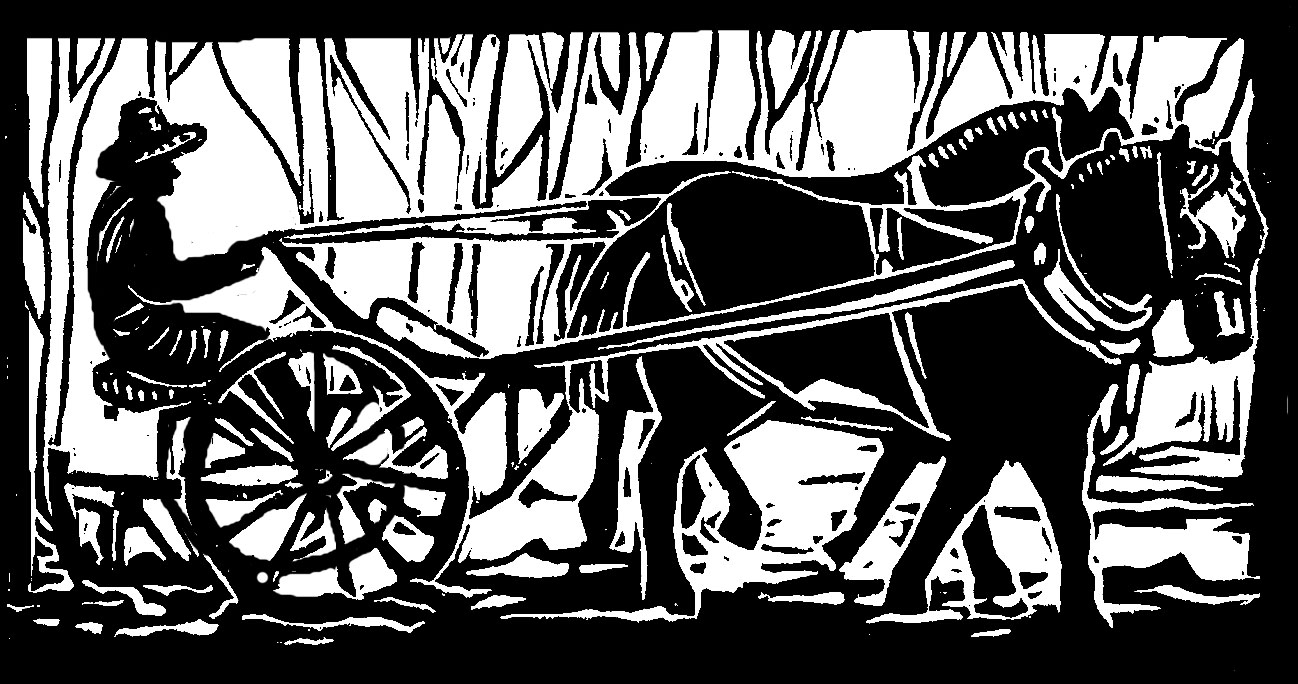Here on our New Hampshire vegetable farm, we fling our arms open wide for winter. We know many people who dread the cold season in the Northeast, or at least require a considerable bracing to meet the blast. We farmers have a fantastic idea to beat those winter's-on-its-way blues: you too can become a vegetable farmer!
First of all, as the cold weather gains strength and promise, you will revel in the fact that you get to be indoors. You will have spent so much time outside all spring, summer, and fall, in every conceivable type of pleasant and unpleasant spring, summer, and fall weather, that you will be eager to go in your house and stay in your house, snugly protected from the elements. Nor more harvesting for hours in the driving rain; no more sweating in the blazing sun as you put up loose hay with and for the draft horses that help you farm.
Secondly, as a vegetable farmer, you will positively look forward to winter's decay and death. The first frost? Fantastic! Maybe it will stop those oh-so-productive zucchini, yellow squash, and cucumbers, which you've been bound to pick every other day for the last four months, whether it interferes with all your exciting farmerly social and travel plans (oh ha ha ha!) or not.
Coming close after the first frost is the first hard freeze, which is even better. All kind of garden plants will die! Sure, there might be a frantic morning, afternoon, and night of harvesting everything that won't survive the freeze, and your house will be stock full of buckets, crates, and trays of produce, but at least the plants are dead! They can produce no more! Hooray!
Not only that, in the winter, the bugs are good and dead. All that brain power you've been using to keep track of the bugs on the potatoes and the bugs on the tomatoes and the bugs on the brassicas and the bugs on the squashes will now be freed up for other noble pursuits. Imagine, not having to think about bugs and how to get rid of bugs all day! No more squishing bugs between rocks, or your two fingers, if you're feeling hardy and not-too-squeamish; no more swatting at black flies and mosquitoes; no more whacking the gigantic horse and deer flies feeding on your hardworking draft horses' sweaty flanks.
Of course, and fourthly, winter does bring those very draft horses into their off-season paddock, and they require feeding three times a day. But the horses are invariably glad to see you, because you're bringing breakfast, lunch, and supper, and you can cozy up to those big warm bodies with their furry winter coats and enjoy the the steam puffing from their nostrils and the munching and munching of all that hay you all worked together to gather.
And in the house, you can enjoy all the produce you've canned, frozen, dried, and root-cellared to last you the winter. It's quite nice to have spaghetti sauce simmering on the stove or potatoes roasting in the oven, those long slow cooking dishes filling your house with good smells, and your belly with good feelings. What's so great about lettuce and salad greens anyway?
Fifthly, winter is wonderful for the vegetable farmer because of all that marvelous snow, floating lightly down from the generous sky. That snow covers up all your pressing outside projects, and it also covers up all the season's mishaps or even mistakes in a most pleasing manner. What a beautiful farm, you might think, what a lovely life: why, I don't see a single weed; I don't see any busted up machinery, I don't see anything but a smooth forgiving blanket of snow.
And now, vegetable farmer in the winter that you are, you will go get under your cozy forgiving blankets, and have a long winter's nap. Ah . . .
Originally published in the Monadnock Shopper News, Oct 29 – Nov 4, 2014
